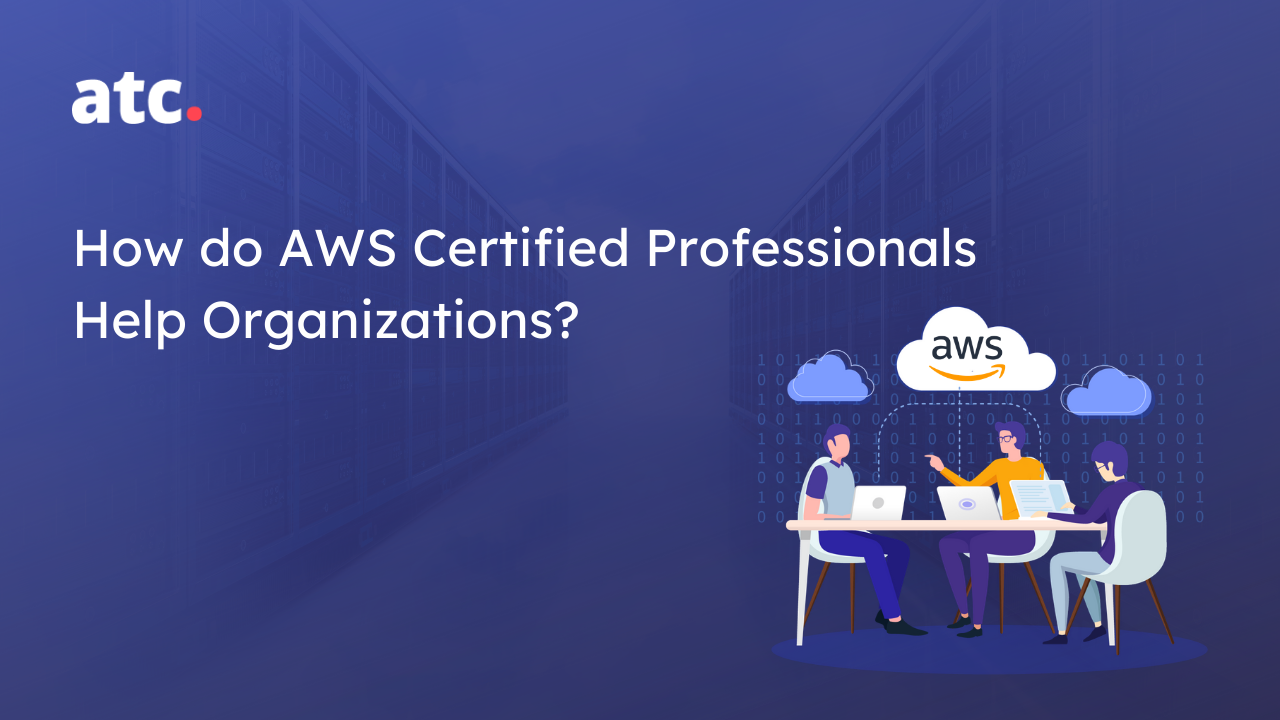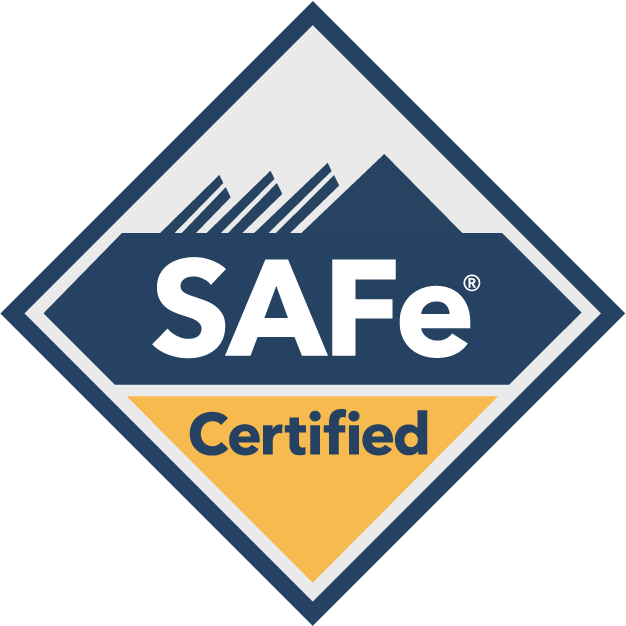Subscribe to the blog
Resource optimization, cost-cutting, and upgrading infrastructure are some things that organizations have to do consistently. Unfortunately, they are sometimes pushed back in favor of more pressing business operation matters. However, what businesses are experiencing today is not business as usual.
Over the last 16 months, events related to the Covid-19 pandemic have drastically altered how organizations operate and deliver services and products. In fact, the daily lives of everyone who works for these companies have also been affected. Today, many businesses are transforming their “nice-to-have” lists of future tasks into immediate concerns.
As such, the increasing demand for digital services and remote working teams as well as the need for specific online processes are driving businesses to upscale their cloud footprint.
In the modern business environment, it’s critical to ensure that businesses have the right infrastructure and tools in place. At the same time, keeping their costs down and securely digitizing operations is also crucial.
Amazon first broke into the market in 2006 as the first Cloud Service Provider (CSP) with their Amazon Web Services (AWS). By 2009, more than a million users were on AWS, giving it a 32.4 percent market share. Today,—fifteen years later—it remains the most recognized and widely used cloud service in the world. The cloud is an invaluable resource to those exploring the new business environment and looking to broaden their cloud service portfolio.
Now, let’s look into how AWS-certified professionals help organizations make the most in meeting new technological demands.
The Cloud Market Trends
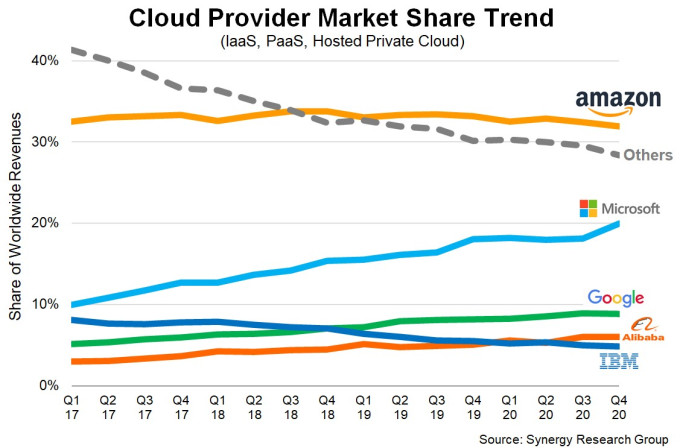
The number of organizations embracing digital transformation is increasing exponentially. Adopting this technology helps them stay innovative and competitive by means of moving data center workloads to cloud services and infrastructures.
Given this increase in demand, the world’s global public cloud infrastructure market is estimated to grow by 35 percent, grossing over $120 billion, by the beginning of 2022. Other projections show the cloud computing industry to grow at least threefold of the overall IT services growth through 2022.
AWS benefits include an organization’s ability to add or relinquish storage and network and compute resources when required, allowing for a fast response to the processing demands while reducing their capital expenditure. Also, processes and data critical to the organization can be accessed from just about anywhere in the world.
AWS provides a host of cloud services on its reliable platform at attractive rates. It is also the preferred vendor by the U.S. federal government. The company has over 200 services, a strong infrastructure platform, and CI/CD deployment support and hosts microservices development.
As more organizations turn to AWS, the demand for qualified AWS professionals keeps growing. Therefore, training is increasingly critical to facilitate the continuous growth in the adoption and usage of cloud services.
Key Benefits of AWS Cloud Computing for Organizations
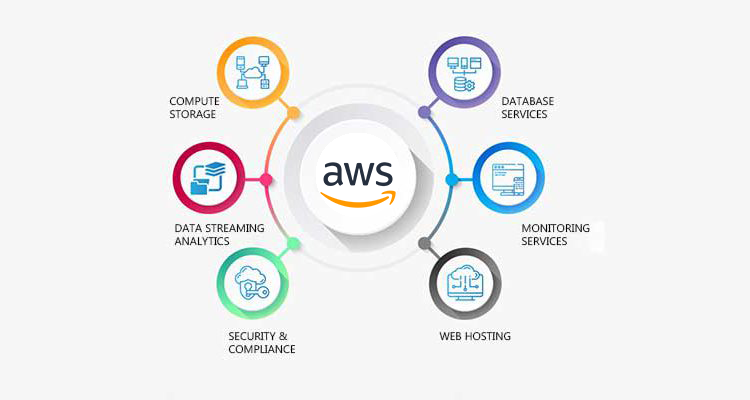
AWS provides businesses three major types of cloud computing services:
- Software as a Service (SaaS)
- Infrastructure as a Service (IaaS)
- Platform as a Service (PaaS)
Further, there are three general types of cloud infrastructure:
- Public
- Private
- Hybrid (a combination of public and private cloud elements)
Organizations value cloud computing for its accessibility and flexibility. Some of AWS’ benefits for enterprises include the following:
A Flexible Pricing Structure
AWS covers all sizes of businesses in its pricing structure, from small-scale startups to international conglomerates. The company has a pay-as-you-go model, which means that businesses pay only for the resources they use in a given duration and volume. There is also a per-minute basis that charges only for the duration you use certain services for.
Zero Commitment
AWS services do not require an upfront commitment. Whether a business wants to host its website or spawn a virtual machine, it doesn’t need to pay a commitment fee tying them to monthly, quarterly, or even annual plans.
Improved Security
AWS takes cloud security seriously. The company has a physically secure infrastructure and network that is regularly audited for breaches. Plus, a global infrastructure ensures that the data is distributed and accessible to employees from anywhere in the world.
Built-in firewalls monitor data at entry points of the network and encryption protects the data as it moves through the network for end-to-end security. Amazon IAM lets decision-makers in the organizations identify those who access their resources and control granting access to whom, what, and when.
Adaptable
AWS provides plenty of options to set up operations on the cloud. Whether companies are creating a fresh installation or migrating their infrastructure to the cloud, AWS covers both.
Businesses can also handle applications and data in different volumes through the scaling feature of AWS services. Some services have automatic configuration and scaling processes. For example, EC2 lets you create instances in a matter of minutes or even spawn backups and copies of instances for added adaptability, depending on what the organization is looking for.
Flexibility
The platform provides over 200 services across 245 countries and also ample security, affordable pricing, and automation flexibility. Part of its services include IaaS, PaaS, and serverless computing, so configuring anything from scratch on the platform is easy. Organizations even have the option of using their code in serverless computing, while AWS takes care of the rest!
All these and more benefits make AWS an attractive proposition for organizations around the globe, so much so that it attracts big names such as Netflix, Samsung, BMW, McDonald’s, and ESPN, with more giants joining every day.
However, all these organizations require the help of professionals to get their AWS setups running, and that’s where your training and certification come in.
The Right AWS Training for Your Needs
Cloud technology training is not a one-size-fits-all package. So, you must ensure that the AWS training & certification you receive is not only right for you but also aligns with your organizational goals.
If you are an IT professional who is new to AWS, an essential introductory class can help you understand the AWS Cloud without the complication of technical roles. This course offers a detailed overview of the critical concepts of the cloud, AWS services, architecture, pricing, security, and support. It can prepare you well to take the AWS Cloud Practitioner Essentials certification later on.
Apart from the foundational course, various AWS courses evaluate your skill sets relevant to the certification you’re seeking. These courses are the best way to prepare yourself to validate your knowledge through certification.
In addition, they are critical in helping you develop a deep understanding of AWS. Attaining AWS certifications shows employers that you have the competency level to use the product.
AWS provides four certification levels:
- Foundational
- Associate
- Professional
- Specialty
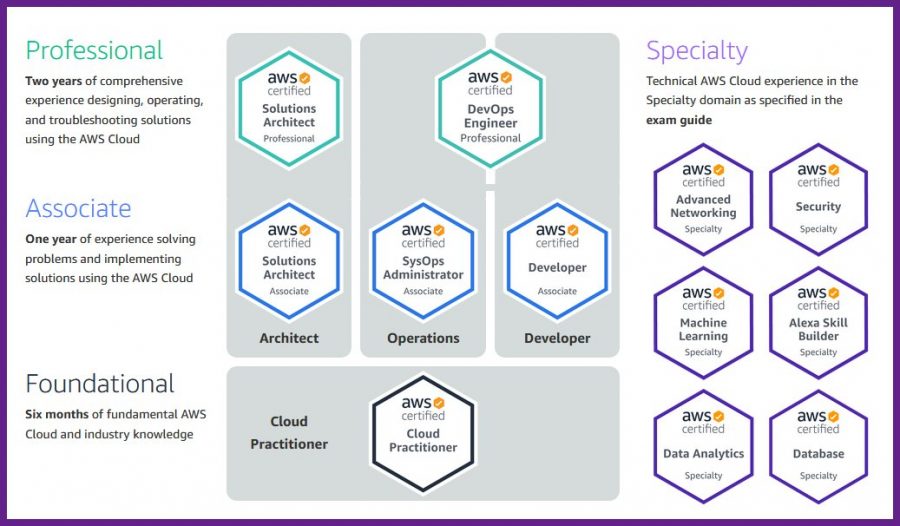
Regardless of the level of certification, you are aiming for, training should be considered an ongoing process. Without ongoing training, IT organizations can lose up to 60 percent of their workforce in just three years. Annually, as little as 10 hours of training per employee is required to keep them up-to-date with their responsibilities.
The Organizational Non-Technical Roles that May Benefit from AWS Training
Familiarity with cloud technology is critical for anyone working in an organization that implements AWS services. Understanding the basics of cloud and AWS technologies can help employees communicate more effectively among themselves and with vendors and customers.
Here are a few non-technical roles that can benefit from AWS certification training:
Sales team: They become more confident as they speak about the organization’s adoption of cloud technology during negotiations and proposals with customers and prospects.
Executives: It equips them to offer effective leadership when they understand the technology platforms their internal teams are using.
Human Resources and Training department: A foundational knowledge can help them support the services they offer to their colleagues.
Project Managers: Training puts them in a better position to discuss issues and progress with stakeholders.
Marketing teams: Training ensures that they use the effective and correct terminology in the organization’s marketing presentations and materials.
Legal teams: AWS knowledge helps them understand the impact of compliance and security issues and those of geo-specific standards.
Finance teams: They achieve a better understanding of the AWS pricing strategy for budget allocation.
Learning AWS is also beneficial if you are new to this field or just starting your career in IT. AWS’ expansive market penetration all over the world means that you are likely to encounter it at one point. And who knows if a basic understanding of this technology turns out to help you seal that job offer or contract assignment, or even get you promoted!
AWS Certification Training Benefits for Your Career

As of 2021, AWS includes over 200 services, more of which is expected to be added each year as cloud services demands continue to grow. The best way to improve your career potential and expertise with these services is through an AWS certification course that is streamlined and detailed.
Nowadays, virtually all employers struggle to find the right candidates with cloud experience. Did you know that three out of five top IT positions are related to distributed systems? These positions are cloud security, cloud architecture, and cloud engineer.
Experts in traditional IT roles can enhance their careers by becoming cloud engineers. Certification is one way of achieving this. IT professionals with AWS certification are more likely to receive a salary increase. Plus, earning certifications makes you more marketable and can help you stand out in the crowd.
An AWS certification also offers a high level of recognition for your skills in organizations and among others within the industry. AWS-certified professionals get digital badges to display on marketing materials, correspondences, and social media.
Certification also prepares you to tackle AWS assignments and demonstrates your commitment and dedication to the development of cloud technology to hiring managers and employers.
In the rapidly evolving cloud technology market, a relevant and current certification proves that you are updated on the latest changes and trends, giving you an edge over those without a certification.
While experience is vital for job promotions and applying for a new one, a certification might be the very factor that makes all the difference between a rejection and an offer. Hiring managers use certifications to gauge the technical competencies of an individual—they are signposts that you have attained a level of AWS knowledge.
Further, an AWS certification makes you more valuable to an organization, enabling you to achieve the following:
● Be mentioned among the AWS-certified personnel in the organization’s promotional and marketing materials, which further helps them bring in better candidates and attract clients;
● Stand out in a highly competitive market.
Most In-Demand AWS Skills in the Market
If you are considering taking your cloud expertise to the next level, the following are the most-needed skills today:
Cloud Security
The initial adopters of cloud technology were once concerned about the cloud hosting their data. But cloud security has since immensely improved.
Security is a shared concern between organizations and service providers. This means that companies are demanding cloud professionals that have security specialization to leverage the AWS cloud security tools.
DevOps
The DevOps approach is the unification of various tools, practices, and attitudes to improve the delivery speed of services and applications by operations and development teams. This concept helps organizations around the world innovate and improve on their current products much faster than conventional processing methods.
DevOps allows the automation of moving code from the development team to the production time. Tasks such as monitoring, integration, testing, and deployment are automated at the same time. The primary focus is to ensure seamless flow in the development, integration, and deployment of products that support SaaS applications on the cloud.
We expect the DevOps market to become a $12.8-billion segment by 2025 which explains why the AWS community places such a high value on DevOps skills. To improve your DevOps skills, AWS has the Certified DevOps Engineer (Professional) certification intended for individuals who have at least two or more years of experience in the management of AWS environments.
Migrating to the Cloud and Deployment in Multiple Cloud Systems
Many organizations are moving several applications to the cloud. Over 90 percent of key IT decision-makers in organizations run their business operations on multiple infrastructure clouds.
Such companies are finding it hard to source contracts and permanent employees capable of helping them with these cloud migration projects. Failure to do so may lead to organizational downtime or even increase critical data vulnerability, which they want to avoid.
The Serverless Architecture
The modern cloud implements industry-standard programming languages and technologies capable of moving serverless apps from a cloud to the next vendor. Such a service is easy to scale and apply to patches. Serverless app development is becoming a top priority for many organizations. Some of the most in-demand compute products include AWS Lambda, AWS Batch, Amazon EC2, and Elastic Container Service.
Programming Languages
Python is a programming language that is excellent for Lambda environments because of fast spin-up times. The language also contains a large repository of third-party modules capable of easing inter-platform or inter-language interaction. Plus, it is easy to learn and is critical in avoiding an overly complicated architecture.
Other in-demand languages include JavaScript and GoLang.
Containers
Experience in handling containers such as Kubernetes, Jenkins, and Docker is an important skill for AWS professionals to master. Containers feature a standard way to package application code, dependencies, and configurations into a single entity. This capability makes it popular because organizations can create their hybrid applications, put batch processing jobs in a package, and scale machine learning models fast. One of the most popular container tools on the market is the Amazon EC2.
10 Most Popular Certifications
Organizations value these certifications on the job market. But you don’t have to do them all. Rather, you can choose the best one for you depending on your career goals, profile, and experience.
- AWS Certified Cloud Practitioner for beginners[1]
- AWS Certified Developer (Associate) for programmers
- AWS Certified Solutions Architect (Associate) for software architects
- AWS Certified SysOps Administrator (Associate) for system admins
- AWS Certified Data Analytics (Specialty) for data analysts
- AWS Certified Advanced Networking (Specialty) for networking experts
- AWS Certified Security (Specialty) for security professionals
- AWS Certified Database (Specialty) for DBAs
- AWS Certified Big Data (Specialty) for big data experts
- AWS Certified DevOps Engineer (Professional) for DevOps engineers
Start Your Journey Today
Is learning AWS the right career move for you?
This depends on the path you want to pursue. When you decide to go with the cloud, the best way to stay on track and boost your employability is by acquiring AWS skills and certifications. You can do this through AWS online training courses. Plus, you also have the benefit of several resources available for both professionals and beginners.
We Can Help
As a busy, forward-thinking professional, you are committed to lifelong learning and enhancing your professional skill sets. To assist you in the same, we have a number of online courses on SAFe, AWS, and other technical fields. Whether you are a Scrummaster, Program or Product Manager, Agilist, Enterprise, System or Solution Architect, you will find a course that meets your needs.
We're committed to learning and adapting to the industry standards and staying ahead of the curve.
Propel your career to the next level. Enroll today!
